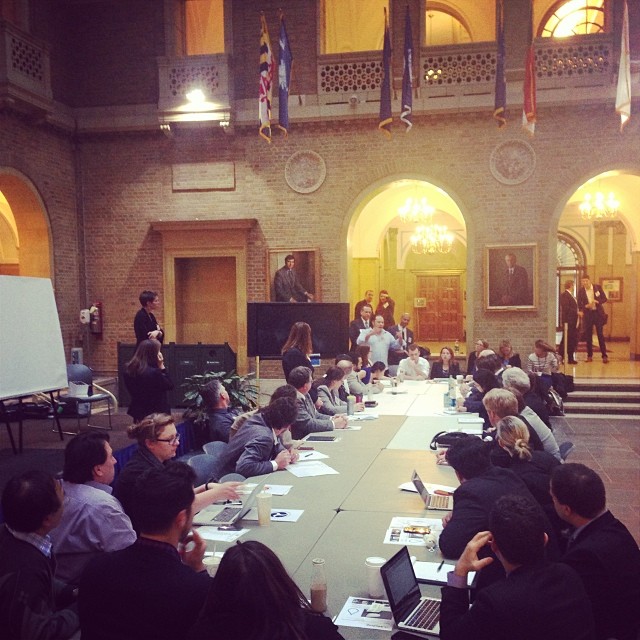
Here’s how the White House Office of Science and Technology suggests government engage the public around open data: data jams, datapaloozas and hackathons.
Open Data Engagement
So you’re opening up government data and making it easier to find and use – to inspire new ideas, spur economic growth, and ultimately make your agency more effective in achieving its mission. But you realize that your agency can’t just supply data – it’s also about getting and acting upon feedback, and catalyzing use of the data from a wide variety of stakeholders. A community event is a great way to hear ideas and feedback from passionate people, offer your expertise to people with thoughtful questions and evangelize your data assets. This document gives an overview of the main types of open data community events the U.S. Government holds.
Data Jam
A closed-press, day-long ideation event with developers, designers, and subject matter experts focused on one topic and top related open data sets. Several are held in succession, leading up to a datapalooza three months later. Ex: Health Data jam (HHS), 21st Century Jobs Jam (OVP, Commerce, OSTP), Mitigating Campus Sexual Assault (Department of Education, Department of Justice)
Goal: To connect tech and policy communities and get commitments to make things with open data, in support of agency mission and priorities.
Datapalooza
An open press celebration, demo day, and platform to announce government open data releases or improvements. Ex: Safety Datapalooza (DOT, CPSC, FDA.)
Goal: To celebrate open data tools, companies and commitments and build momentum for projects.
Hackathon
An event where developers, designers, and strategists work in teams to solve problems with software and/or hardware and demo the resulting work at the end of the day. Ex: White House “We The People” API Hackathon, The American Art API Hackathon
Goal: To build relationships with the tech community and to see immediate tools and prototypes.
Not mentioned: ongoing relationships over social media, use of email groups (hello, Investigative Reporters and Editors / NICAR and Sunlight Foundation), online communities like the ones hosted on Data.gov or Facebook or Google+, and one of the most important signals for demand and vectors for government data becoming open: requests from the Freedom of Information Act, both from industry and media, particularly data journalists.
Bottom line: Datajams, datapaloozas and hackathons are all new methods for the White House to engage the public, and they’ve advanced the policy goals espoused in the open data executive order, but they aren’t enough on of themselves to broadly engage the public or end users for data.
After all of these years, it’s unfortunate to see the policy folks at the White House still failing to acknowledge, in a policy document like this, many of the primary end users of their data or where to go find them and engage them, much less do so. It’s also consistently disappointing to see the @OpenGov Twitter account, with nearly 700,000 followers, just broadcast messages and ignore @replies, instead of acknowledging criticism and engaging the public more around these efforts.
Some government staffers have joined the NICAR mailing list and responded to the concerns or wishes expressed there: here’s hoping more follow onto other communities. In the meantime, I’m experimenting with a pull request on Github to see if these suggestions might be incorporated into the policy.
Update: The White House accepted my pull request.

Engagement now includes:
Online Community
A website, social networking group and/or email mailing list where people who use open data congregate to offer feedback, tips, new uses or reuses, data requests or case studies. Ex: Data.gov communities, NICAR/IRE, Code for America and Sunlight Foundation email listserv, Open Government Facebook and Google+ groups
Goal: To build and sustain ongoing relationships with media, nonprofits, good government advocates and civic technologists
FOIA Officers and Ombudsman
Federal agency staff dedicated to handling Freedom of Information Act (FOIA) requests from industry and media. The Office of Government Information Services (OGIS) at the National Archives and FOIA staff at agencies
Goal: To monitor and measure the incoming demand for data and proactively release data in response to that signal.
This post has been updated, including the headline.





